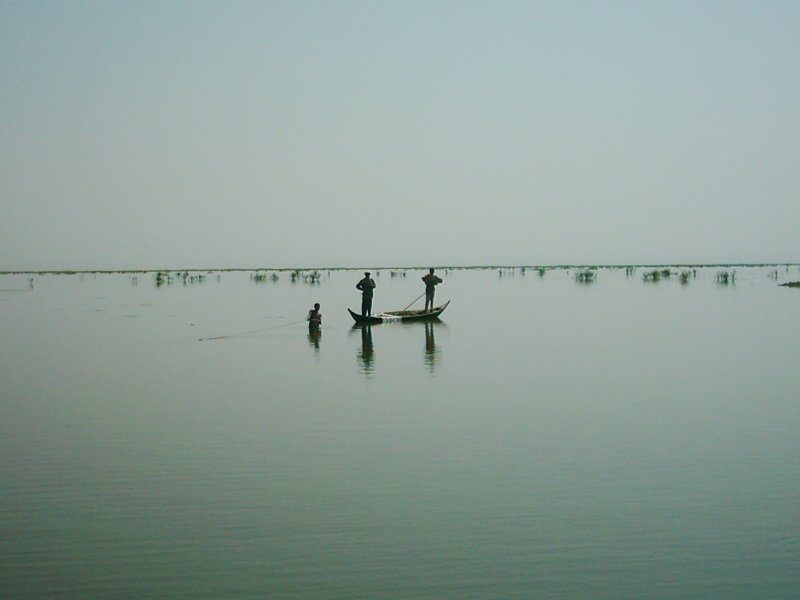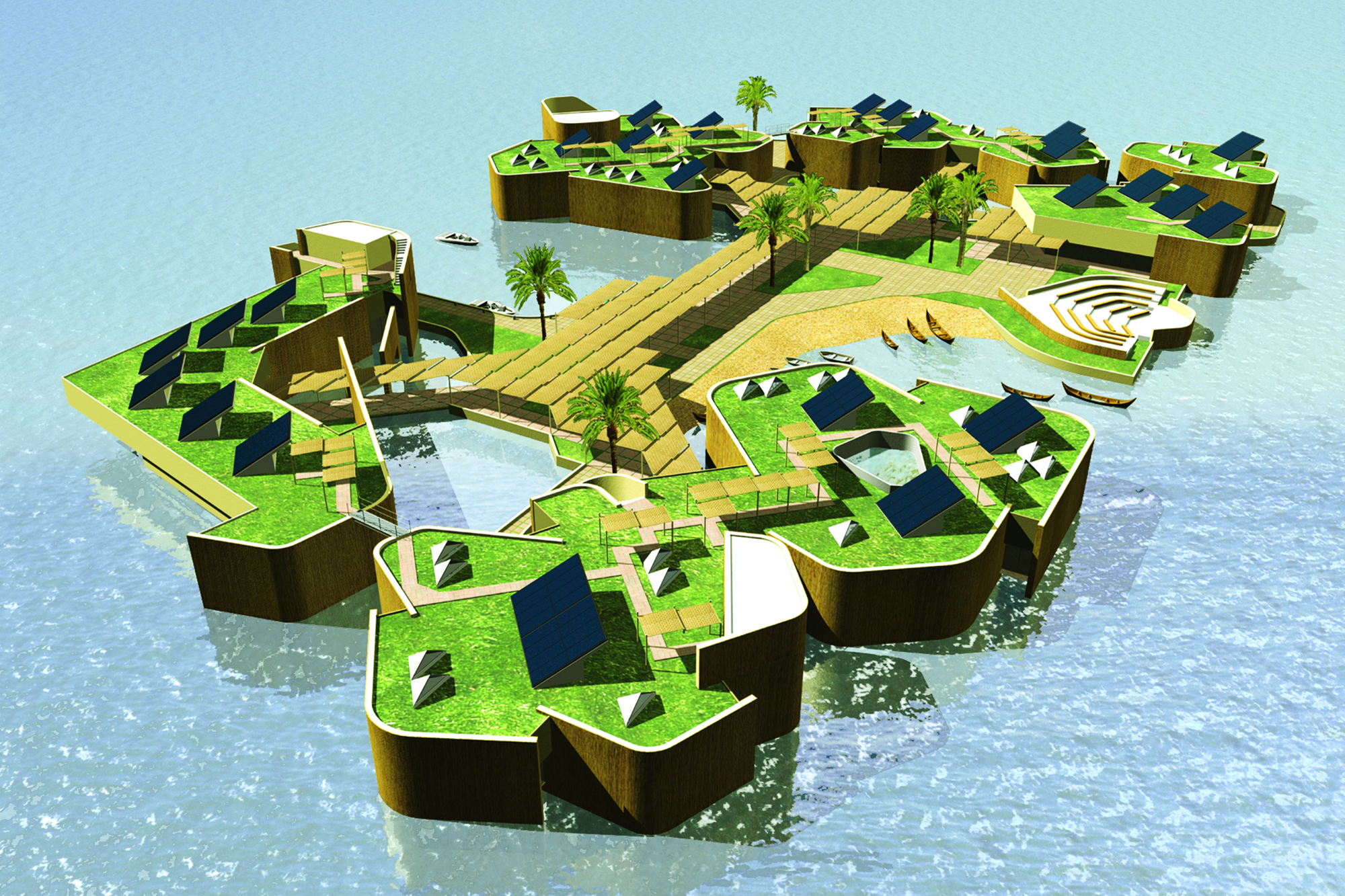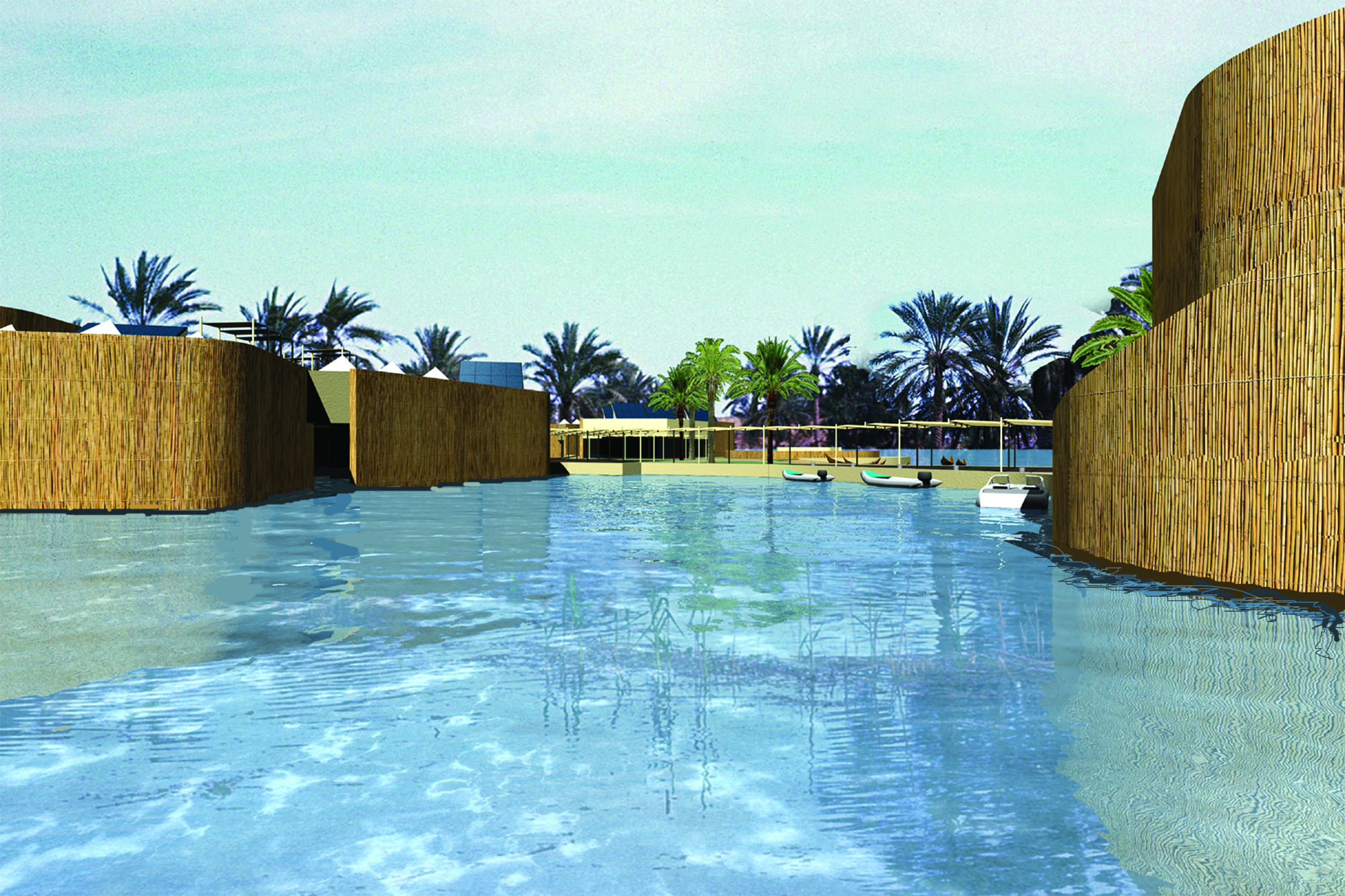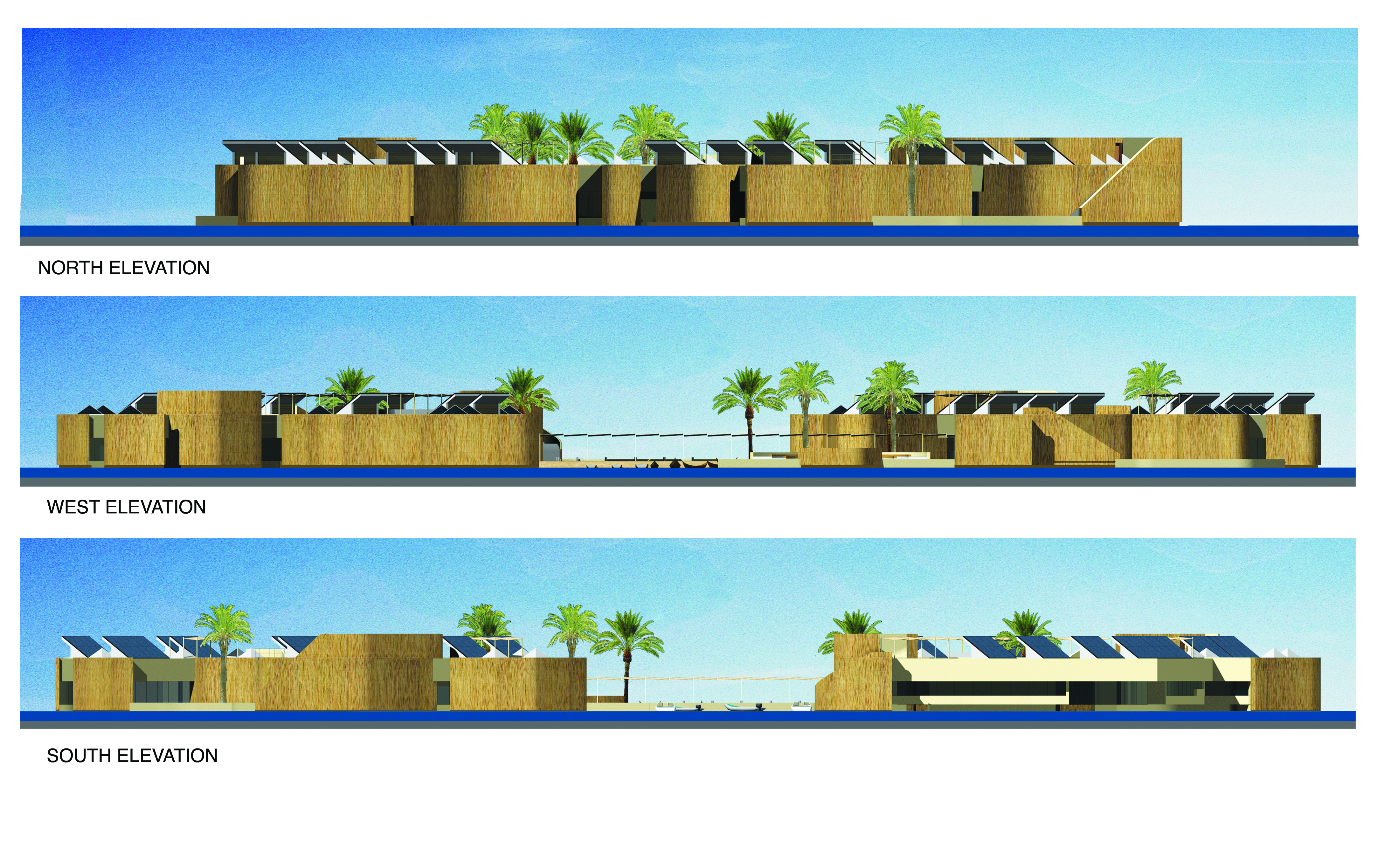Richard Kroeker
Architect
Research Centre and Museum of Mesapotamian Marsh Arab Culture
Tigris and Euphraties River, Iraq
Winning Competition Entry
Often referred to as the Garden of Eden, the ecologically and culturally unique Marshes of the Mesopotamian region were decimated by 1990’s damming of the Tigris and Euphrates Rivers, and local drainage projects, targeted at undermining the local culture. In an initiative to restore this ancient culture and its unique ecosystem, the Iraqi Ministry of Culture sponsored an open international competition to create a centre for the research of indigenous plant and animal life which could give guidance in the restoration of the Marsh ecosystem and the culture which it supported for more than five thousand years. The design was developed to involve the local community in restoring traditional materials and methods, using marsh canes, and compacted earth to build on artificial islands, combined with solar photovoltaics, aquatic water purification, and wind catchers as part of a natural aquatic cooling system. As designed, the complex includes an Environmental Research Centre, Library, Multipurpose Hall, Natural History Museum, Archaeology Museum, and Cultural Museum. The flat, accessible roofs were conceived as islands, increasing the outdoor space. The walls above the water line are designed of rammed earth, protected by rain and sun screens made of marsh canes. The design team consisted of Richard Kroeker, Sahar Rassam, Riadh Tappuni, Sal Tappuni , and Trevor Butler.




